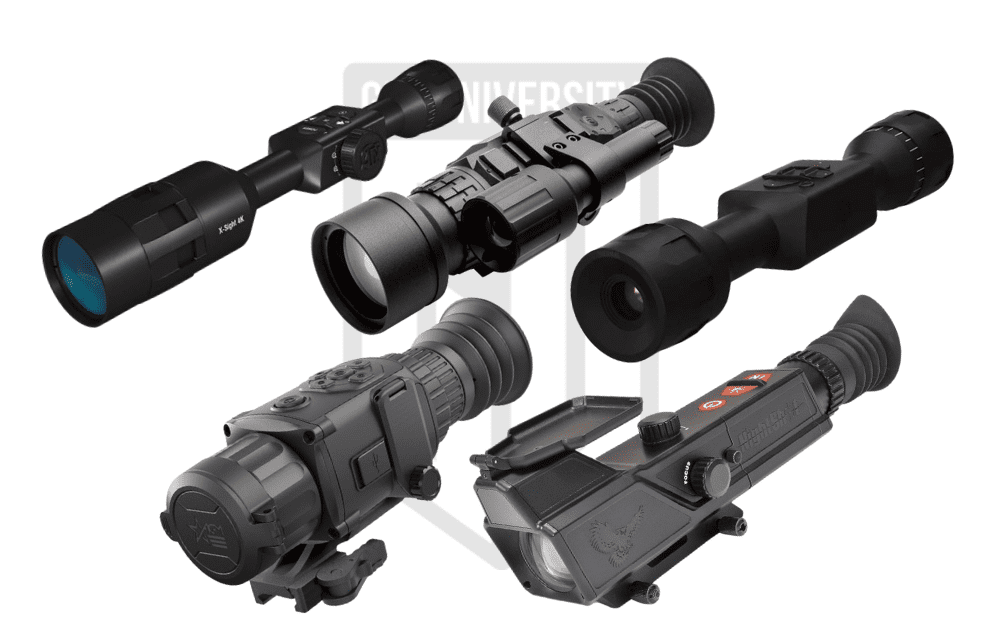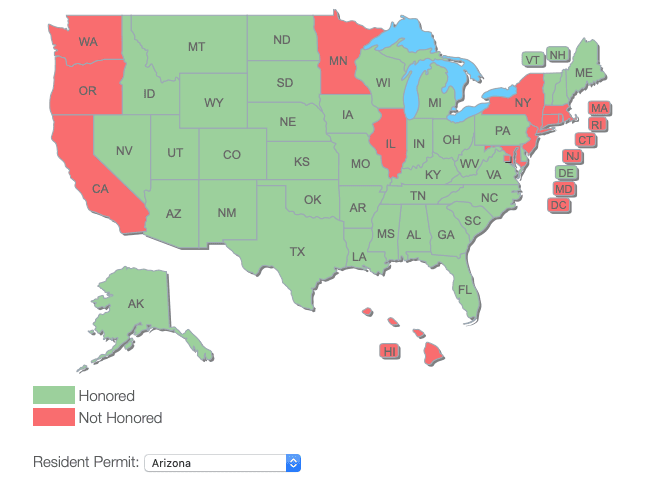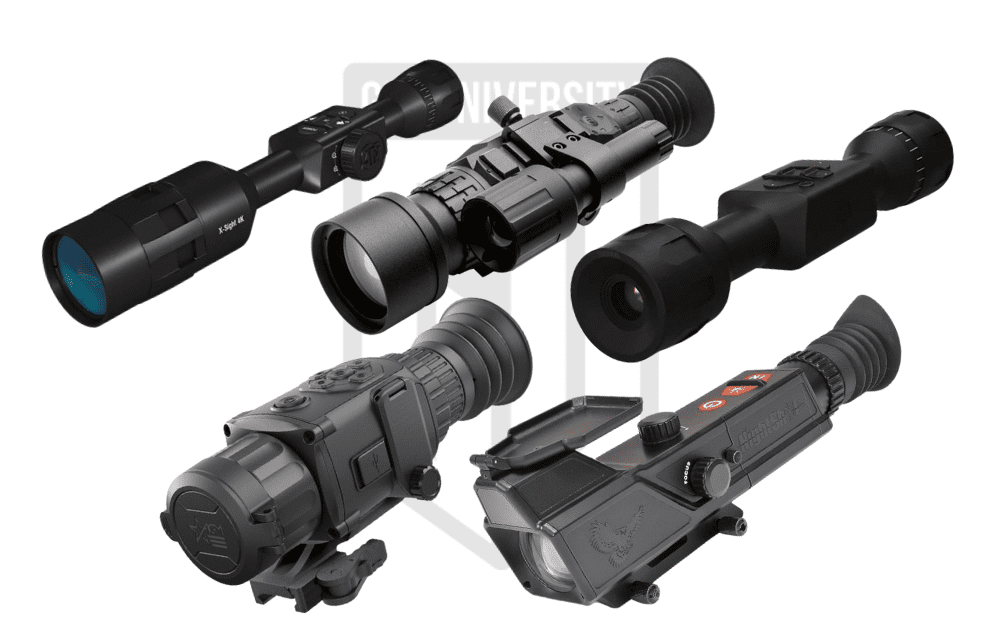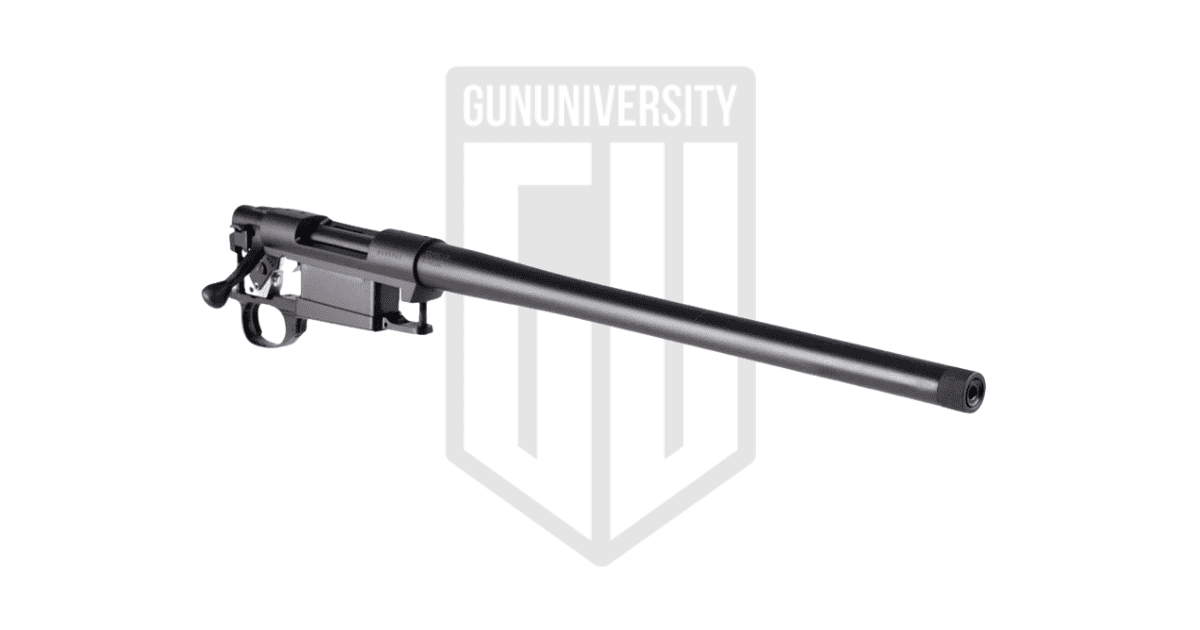

So, you’ve decided that you want to obtain a concealed carry permit (CCW) for your self-defense. Well, you’ve come to the right place! In this article, we’ll walk you through the process of obtaining a CCW permit, step by step. We’ll cover everything from meeting prerequisites to satisfying training requirements and applying for the permit itself.
We’ll also discuss different types of training options, including online courses for specific state permits. Throughout the process, it’s essential to prioritize safety, and we highly recommend receiving training from a qualified instructor with positive reviews. By the end of this article, you’ll have all the information you need to confidently navigate the path toward obtaining your CCW permit. Let’s get started!
Meeting Prerequisites
Before you can begin the process of obtaining a concealed carry permit (CCW), there are a few prerequisites that you must meet. These prerequisites are in place to ensure that individuals who are carrying concealed firearms are responsible and qualified to do so.
Checking eligibility requirements
The first step in meeting the prerequisites for a CCW permit is to check the eligibility requirements set by your state.
These requirements can vary from state to state but commonly include factors such as age, criminal history, and mental health status. It is important to familiarize yourself with these requirements to determine if you are eligible to apply for a CCW permit.
Age requirement
In most states, the minimum age requirement to apply for a CCW permit is 21 years old. However, there are a few states that have a minimum age of 18. It is essential to check your state’s specific age requirement to ensure that you are eligible to apply.
Residency requirement
Another prerequisite to obtaining a CCW permit is meeting the residency requirement of your state. Most states require applicants to be residents of the state in which they are applying for a CCW permit. This means that you must have a valid driver’s license or identification card from that state. Some states may also require proof of residency, such as a utility bill or lease agreement.
Background checks
One of the most important prerequisites for obtaining a CCW permit is passing a background check. This check is conducted by law enforcement agencies to ensure that applicants do not have a criminal record or a history of violence.
The background check may also include a check of mental health records. It is important to note that certain criminal convictions or mental health conditions may disqualify you from obtaining a CCW permit.
Satisfying Training Requirements
Once you have met the prerequisites for a CCW permit, you will need to satisfy the training requirements set by your state. These requirements are in place to ensure that individuals carrying concealed firearms have received proper training on firearm safety and usage.
Understanding the training requirements
Before you choose a training program, it is crucial to understand the specific training requirements set by your state. These requirements may include a minimum number of training hours, specific topics that must be covered during training, and qualification standards for instructors. By familiarizing yourself with these requirements, you will be able to choose a training program that meets the standards set by your state.
Types of training options
There are several types of training options available for individuals seeking a CCW permit. These options can vary from state to state but commonly include classroom-only training, classroom and range qualification, and online courses. It is important to consider your learning style and availability when choosing a training option.
Choosing a training program
When selecting a training program, it is essential to research the options available in your area. Look for programs that are accredited and have qualified instructors who prioritize safety.
You may also want to consider programs that have positive reviews from past participants. By choosing a reputable training program, you can ensure that you are receiving quality instruction that will prepare you for responsible firearm ownership.
Completing the required training hours


This image is property of gununiversity.com.
Once you have chosen a training program, you will need to complete the required training hours set by your state. These hours may include a combination of classroom instruction and practical exercises at a shooting range.
It is important to take the training seriously and fully engage in the material presented. Remember, the goal of the training is to equip you with the knowledge and skills necessary to safely carry a concealed firearm.
Applying for the Permit
After you have met the prerequisites and completed the required training, you can begin the process of applying for a CCW permit. This process involves several steps that must be followed carefully to ensure a successful application.
Contacting the local sheriff’s office or police department
The first step in applying for a CCW permit is to contact your local sheriff’s office or police department. They will be able to provide you with information on the application process and any additional requirements specific to your jurisdiction. It is important to reach out to the appropriate authority to ensure that you have accurate and up-to-date information.
Obtaining the application form
Once you have contacted the local sheriff’s office or police department, they will provide you with the necessary application form. This form will require you to provide personal information, such as your name, address, and contact information. It may also require you to disclose any criminal convictions or mental health history.
Gathering required documents
In addition to the application form, you will need to gather certain documents to submit with your application.
These documents may include a copy of your driver’s license or identification card, proof of residency, and any other supporting documentation required by your state. It is important to carefully review the application instructions to ensure that you include all the necessary documents.
Completing the application form
Once you have gathered all the required documents, you can begin to complete the application form. Take your time and double-check that all the information provided is accurate and complete. Any errors or omissions could result in delays or even a denial of your application.
Submitting the application and fees
Once you have completed the application form and gathered all the necessary documents, you will need to submit your application to the appropriate authority. In addition to the application, you will also need to pay any required fees.
These fees can vary from state to state but commonly include an application fee and fingerprinting fee. Be sure to follow the instructions provided by your state regarding the submission of your application and payment of fees.
CCW Reciprocity
CCW reciprocity is an important concept to understand if you plan to travel with your concealed carry permit. Reciprocity allows for the recognition of permits from one state to another, which means that if your permit is recognized in another state, you can legally carry concealed in that state.
Understanding CCW reciprocity
CCW reciprocity ensures that the rights of concealed carry permit holders are respected when they travel across state lines.
Without reciprocity, permit holders may face legal consequences for carrying concealed in states that do not recognize their permit. Understanding which states have reciprocity agreements with your state is essential for avoiding legal issues while traveling.
Checking reciprocity agreements
To determine which states recognize your permit, you will need to check reciprocity agreements. These agreements outline the specific terms and conditions under which a permit from one state is recognized by another.
Your local sheriff’s office or police department should be able to provide you with information on reciprocity agreements. Additionally, there are online resources that provide updated information on reciprocity agreements between states.
Knowing which states recognize your permit


This image is property of gununiversity.com.
It is important to know which states recognize your concealed carry permit to ensure that you comply with local laws when traveling. Some states have reciprocity agreements with a large number of other states, while others have very limited reciprocity. By understanding which states recognize your permit, you can plan your travels accordingly and avoid any legal complications.
Constitutional Carry States
In addition to obtaining a CCW permit, it is important to be aware of the existence of Constitutional Carry states. Constitutional Carry refers to the legal permission to carry a concealed firearm without the need for a concealed carry permit. This means that individuals in Constitutional Carry states can legally carry concealed firearms without going through the process of obtaining a CCW permit.
Understanding Constitutional Carry Laws
Constitutional Carry laws are based on the belief that the Second Amendment of the United States Constitution guarantees the right to bear arms without unnecessary restrictions. These laws vary from state to state and may have certain restrictions or limitations. It is important to research your state’s specific Constitutional Carry laws to understand your rights and responsibilities.
Researching state-specific laws and regulations
If you live in a Constitutional Carry state or plan to travel to one, it is essential to research the state-specific laws and regulations regarding the carrying of concealed firearms.
While you may not need a CCW permit to carry concealed, there may still be certain restrictions or requirements that you must adhere to. Being knowledgeable about the laws in your state of residence and any states you plan to visit is crucial for responsible gun ownership.
Types of CCW Permits
When obtaining a CCW permit, it is important to understand the different types available and how they may affect your ability to carry concealed.
Differentiating between resident and non-resident permits
Resident permits are issued to individuals who are residents of the state in which the permit is being obtained. These permits usually offer the broadest range of reciprocity agreements and are generally valid only in the issuing state.
Non-resident permits, on the other hand, are issued to individuals who do not reside in the state but wish to carry concealed when traveling to that state. Non-resident permits may have limitations on the states that recognize them.
Exploring online CCW permits
Online CCW permits have become increasingly popular in recent years and offer a convenient option for those seeking a CCW permit.
These permits typically provide training and certification online, allowing individuals to complete the required training from the comfort of their own homes. It is important to research the specific requirements and limitations of online CCW permits before choosing this option.
Understanding the limitations of non-resident permits
While non-resident permits can be a convenient option for individuals who frequently travel to a specific state, it is important to understand their limitations. Non-resident permits may have fewer reciprocity agreements and may not be recognized in as many states as resident permits.
Additionally, some states may require that non-resident permit holders also possess a valid permit from their state of residence. Carefully research the limitations and requirements of non-resident permits before applying.
Choosing a Training Program
When it comes to obtaining a CCW permit, proper training is of utmost importance. Choosing a quality training program ensures that you receive the necessary knowledge and skills to carry a concealed firearm responsibly.
Importance of receiving proper training
Receiving proper training is essential for responsible firearm ownership. The training not only teaches you how to safely handle and use a firearm but also educates you on the legal and ethical considerations that come with carrying a concealed weapon. Proper training reduces the risk of accidents and prepares you to respond appropriately in self-defense situations.
Researching qualified instructors
When choosing a training program, it is important to research the qualifications of the instructors. Look for instructors who have appropriate certifications and experience in the field of firearms training.
You may also want to consider their teaching style and ability to effectively communicate the necessary information. Additionally, seek out instructors who are familiar with the laws and regulations specific to your state.
Considering safety as a priority
Safety should be a top priority when selecting a training program. A reputable program will prioritize safety during all aspects of the training, from classroom instruction to practical exercises.
Look for programs that emphasize the safe handling and storage of firearms, as well as proper techniques for drawing and firing a concealed weapon. Remember, safety is essential for both you and those around you.
Checking instructor reviews and credentials
Before committing to a specific training program, it is beneficial to check instructor reviews and credentials. Reviews from past participants can provide insight into the quality of the program and the effectiveness of the instructors.
Additionally, verify that the instructors hold the necessary certifications and qualifications to provide the training. This step ensures that you are receiving instruction from professionals who are knowledgeable and experienced in the field of firearms training.
Training Options
When it comes to CCW training, there are several options available to suit different learning styles and preferences. It is important to explore these options and choose the one that best fits your needs.
Classroom-only training
Classroom-only training is a traditional training option that provides instruction on firearm safety, laws and regulations, and ethical considerations.
This type of training typically does not involve any practical exercises at a shooting range but focuses solely on the theoretical aspects of carrying a concealed firearm. Classroom-only training can be a good option for individuals who prefer a more structured learning environment.
How Accurate Is A Hunting Crossbow?
Classroom and range qualification
Classroom and range qualification training combines classroom instruction with practical exercises at a shooting range. This type of training allows you to apply the knowledge learned in the classroom in a controlled shooting environment.
Range qualification ensures that you can safely and accurately handle a firearm before carrying it concealed. This training option provides a well-rounded learning experience that combines theory and practical application.
Online CCW courses
Online CCW courses offer the convenience of completing the training from the comfort of your own home. These courses typically include video lectures, interactive quizzes, and written material to facilitate learning.
While online courses can be a convenient option, it is important to ensure that the course meets the training requirements set by your state and provides comprehensive instruction on firearm safety and usage.
Exploring Virginia non-resident permits
If you are a non-resident of Virginia but wish to carry concealed in the state, you may be eligible for a Virginia non-resident permit.
What Brand Of Crossbow Is Best?
To obtain this permit, you will need to complete the required training and meet the other prerequisites set by the state of Virginia. Research the specific requirements for obtaining a Virginia non-resident permit and consider this option if it aligns with your needs and travel plans.
Tennessee resident online CCW permits


This image is the property of gununiversity.com.
Residents of Tennessee also have the option to complete an online CCW course specific to their state. This online course provides the necessary training and certification required to obtain a Tennessee resident CCW permit. If you are a Tennessee resident and prefer the convenience of online training, this option may be suitable for you.
Safety and Responsibility
As a concealed carry permit holder, it is crucial to understand and embrace the principles of firearm safety and responsible gun ownership. Practicing these principles ensures the safety of yourself and those around you.
Understanding the importance of firearm safety
Firearm safety is paramount when carrying a concealed weapon. You should always treat every firearm as if it is loaded, never point a firearm at anything you do not intend to shoot, and keep your finger off the trigger until you are ready to shoot.
What Kind Of Crossbow Is Used For Deer Hunting?
Additionally, always store and transport your firearm unloaded and in a secure manner. By understanding and practicing firearm safety, you are minimizing the risk of accidents and promoting responsible gun ownership.
Adhering to local laws and regulations
As a concealed carry permit holder, it is your responsibility to be aware of and adhere to the local laws and regulations regarding carrying firearms. These laws may vary from state to state and can include restrictions on the carrying of concealed firearms in certain locations or situations. Stay informed about any changes in local laws and seek legal advice if you have any questions or concerns.
Is It Legal To Hunt With A Crossbow?
Practicing responsible gun ownership
Responsible gun ownership extends beyond the act of carrying a concealed firearm. It involves properly maintaining and securing your firearm, regularly practicing your shooting skills, and staying current with updates in firearms laws and best practices. By practicing responsible gun ownership, you are demonstrating a commitment to the safety and well-being of yourself and others.
Conclusion


This image is property of gununiversity.com.
Obtaining a concealed carry permit is a personal decision that comes with great responsibility. By meeting the prerequisites, satisfying the training requirements, and applying for a CCW permit, you are taking a step toward protecting yourself and others.
Remember to prioritize safety, choose a reputable training program, and adhere to local laws and regulations. With proper training and responsible gun ownership, you can carry concealed with confidence and peace of mind.




